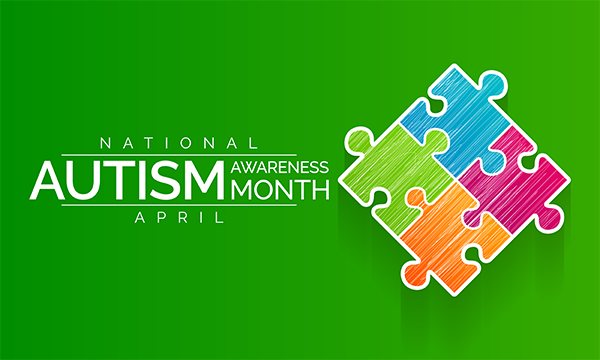
April has been an important and busy month for the Autism Spectrum Disorder (ASD) community for over 50 years, with the initial emphasis on promoting awareness of autism by the Autism Society of America in the 1970s. In recent years, as a reflection of the neurodiversity movement and increased inclusion of self-advocates and family members in the development of these initiatives, the emphasis of April has shifted to acceptance of autism. However, this perspective has been voiced for much longer than it has been embraced and implemented. Although this may seem a subtle distinction, the terminology and semantics are extremely important as we strive to support individuals with ASD and their families using a person-centered approach.
Awareness of ASD has certainly improved and increased since the first April Autism Awareness month, as has a deeper understanding of the breadth and depth of neurodiversity outside, within, and across the autism spectrum. While awareness efforts tend to highlight rates, costs, and other downsides to the diagnosis in an effort to motivate increased funding, research, and other supports for people with ASD, these efforts also have potential to ignore the positive aspects that ASD contributes to our communities and society. Thus, part of the shift to April’s emphasis on acceptance of ASD urges us to look beyond awareness and put into action the things that we are learning about ASD- such as not only providing care that increases quality of life but also avoiding the assumption that quality of life for ASD is poor. Acceptance demands more of the community in which people with ASD live to recognize we have far to go in achieving true inclusion.
The acceptance vs. awareness contrast is similar to another evolving discussion regarding person- vs. identity-first language. While professional organizations recommend using person-first (e.g., person with autism), self-advocates stress the importance of identify-first (e.g., autistic person or autistic) language to avoid separating and de-valuing the contribution that the person’s autism has in their identity. For further reading on this topic: https://autisticadvocacy.org/about-asan/identity-first-language. When in doubt, follow the lead of the people of and to whom you are speaking, or ask for a preference.
In either regard, intentional listening and responding will point us in the best direction for people with ASD. Trainees in the Leadership Education in Neurodevelopmental and Related Disabilities (LEND) program at UAB, which operates within the Civitan-Sparks Clinics, are frequently reminded of the importance of the self-advocate and family perspective in informing their approaches to care. This includes listening to their perspective and using language that is meaningful and important to the population we describe and want to support. To improve autism awareness and acceptance at an individual level, explore various podcasts, blogs, and books by self-advocates and their families to shape your interactions in April and throughout the year.